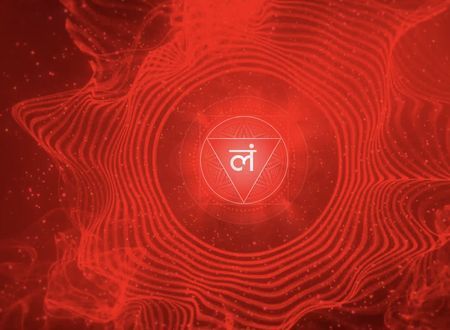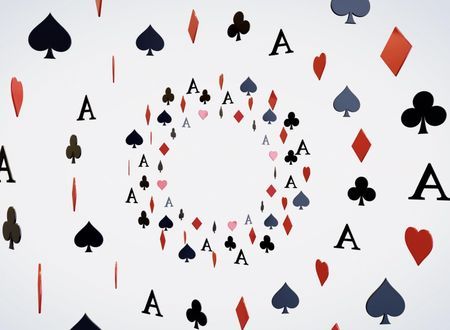Ray Josephs, a journalist, once met the famed Robert Frost at the latter’s 80th b’day celebration (in 1954).
“In all your years and all your travels,” Ray said to Frost, “what do you think is the most important thing you’ve learned about life?”
“In three words, I can sum up everything I’ve learned about life,” Robert Frost paused and said. “It goes on.” 1
It really does, doesn’t it?
It may not be how we want it, life may be difficult or challenging, but we don’t stop breathing, sleeping, or eating. Yes, some of us keep complaining about the unfairness of it all and yet meandering through the inconveniences and obstacles, we keep moving from one moment to the next.
If the gradual erosion of life is a fact of human existence, what can we do to soften the blows or strengthen the banks so to speak? Plenty, as it turns out. But a famous Zen story, first (heavily paraphrased).
There was once a stonecutter who was deeply discontent and frustrated with his life. This was no life, toiling like a donkey day in day out without any pleasures, he thought.
One day he passed a wealthy merchant’s house. Through the open gateway, he saw many fine possessions and important visitors. “Now, that’s what I call life!” he murmured. In that moment, he wished with all his might to be like the merchant.
To his surprise, instantaneously, he became the merchant, enjoying more luxuries and power than he had ever imagined, but envied and detested by those less wealthy than himself. A high official passed by once, carried in a sedan chair, accompanied by attendants and escorted by soldiers beating gongs. Everyone, no matter how wealthy, had to bow low before the procession. “How powerful!” he thought. “I wish I could be him!”
Lo and behold, a moment later, he found himself in the official’s place, being hauled everywhere in his embroidered sedan chair, feared and loathed by the people all around.
It so happened that on a hot summer day, he felt rather uncomfortable in the sticky sedan chair. He looked up at the sun which shone proudly in the sky, unaffected by his presence. “I wish I were the sun!” he thought. Suddenly, he became the sun, shining down fiercely on everyone, scorching the fields, getting cursed by the farmers and laborers.
And then a huge black cloud moved between him and the earth, blocking his light and shine on everything below. “How incredible!” he thought and longed to be free, fleeting, and powerful like the cloud.
Soon after he became the cloud, he found himself being pushed around by some great force and realized that it was the wind. Wanting to be the wind, he became the wind, blowing tiles off the roofs of houses, uprooting trees, causing destruction at his whim and leisure. But that did not last long as he ran up against something that would not move, no matter how forcefully he blew against it — a huge, towering rock.
“That’s one thing,” he thought, “that has been here for thousands of years, unmoved, unshakeable. That’s what I’ve got to be. A rock.”
Silent and still as a giant rock as he stood there, proud and secure, he heard a familiar sound. There it was, a hammer pounding a chisel into the hard surface.
He looked down and saw far below him the figure of a stonecutter who was busy working. One blow at a time.
As a stone, now when he objectively looked at himself, he realized how powerful he always had been.
And so it is with being a witness, sakshi bhava. When you are going through a difficult phase in life, when you feel frustrated, for a moment, just step back. Don’t be the stonecutter who constantly wished for someone else’s life but be the one who in the end saw that he was always someone with great power. For a moment, whatever difficulty you are going through, just imagine that it’s happening to a third person. It’s not happening to you. And you are observing that person from a distance.
How’s he/she feeling, reacting? What is their attitude? How is he carrying himself? Do you feel he/she is more stressed than they ought to be? Just watch that person. Watch closely and pay attention. Observe their behavior, response and everything else. If their pain is really how they feel it is, you will empathize with that person automatically. And when that happens, your pain will subside. If, however, you can’t relate to their pain, you will emerge from this experience a new person. You will find yourself less emotionally invested in the adversity. A kind of carefree abandon will wash over you. Try it any day. The emotional pain and trauma will ease almost immediately.
It requires mindfulness to cultivate the consciousness of being a non-judgmental spectator but it is extremely rewarding.
Mulla Nasrudin was having a conversation with his friend who told him that Buddha said life was a suffering and everything was empty. Absolutely everything we experienced, consumed, saw, felt reeked of emptiness.
“Including the delicious food we eat?” Mulla said.
“Absolutely.”
“Then how did Buddha become so fat if he ate empty food?”
“Mulla!” his friend chided him. “Buddha was an awakened being.”
“Sure he was,” Mulla said, “who else would have the confidence to have a fat belly and pose for a picture with no shirt on.” 2
But I guess all the distinctions created by stereotypes, all the chattering of a rambling mind dissolve into an awakened consciousness like crystals of sugar in hot tea. That’s what’s being a witness to your own life does to you. It lends you the much required objectivity to live a life of grace, meaning and beauty. Most of the emotional drama and turmoil will simply disappear as if magically, if you reject the option of being the culprit or the victim and instead take the position of a witness. We take ourselves, our feelings and words too seriously.
Amidst the lamentations and grievances that escape our lips, it helps to take a look at the fragrant lilies and stunning orchids strewn across the path. No matter how unjust the universe may seem, how imbalanced its scales, it is an impartial witness. It has no favorites nor any bone to pick with anyone. If anything, it enables life which is an extraordinary gift, a fascinating chance to experience untold beauty in you, around you. It all boils down to attitude. An attitude of gratitude, that of patience and compassion, the one of hope and fortitude. You can’t go wrong with a mindset like that.
Powered by the algorithm of the universe, the playlist of life is blaring on. It’s up to you to decide whether you wish to join the chorus, enjoy the ensemble, or walk away because some songs are not to your liking.
Any which way, life goes on.
Peace.
Swami
Important announcements
- Initiation. A big thank you to everyone who has been patiently waiting for the initiation to reopen. I’ve overhauled and simplified the entire system of initiation and have done away with the seven steps. Details here.
- 3-Jul online event. I will come online on the day of Guru poornima, 3-Jul, at 9 AM IST. As always the link will be os.me/live.
Notes
A GOOD STORY
There were four members in a household. Everybody, Somebody, Anybody and Nobody. A bill was overdue. Everybody thought Somebody would do it. Anybody could have done it but Nobody did it.
Don't leave empty-handed, consider contributing.It's a good thing to do today.









Comments & Discussion
176 COMMENTS
Please login to read members' comments and participate in the discussion.